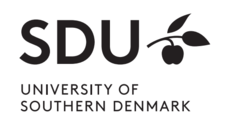Artificial Intelligence

About the programme
The term artificial intelligence (AI) refers to machines capable of performing tasks that typically require human intelligence. Far from being a distant vision of the future, AI is already part of our daily lives. When a streaming service recommends a new series, or when a drone surveys an area for invasive plants, AI is already at work.
Artificial intelligence covers a range of concepts. One of these is machine learning, where algorithms analyse data to make predictions about real-world events. AI is also central to robotics, providing the technology that enables the design and control of robots. At its core, AI seeks to teach machines, computers, and robots how to think, learn, and make decisions.
You do not need to know programming before you start – what matters most is an interest in learning it, along with a strong aptitude for logical and mathematical thinking.
Why choose Artificial Intelligence?
With a Bachelor’s degree in Artificial Intelligence, you will acquire skills that are already highly sought after by companies and organisations in Denmark and abroad. AI is spreading across industries at a rapid pace, ensuring a high level of job security for graduates.
At SDU Vejle, you will study in an international environment with like-minded students from a variety of IT study programmes at Denmark’s newest IT campus. You will also be in close proximity to some of the largest employers of IT specialists, making it relatively easy to find a relevant student job during your studies – and opening up excellent career opportunities after graduation.
Your lecturers on campus are highly accessible, ready to support and guide you with your assignments and projects.
What can I do with a Bachelor’s in Artificial Intelligence?
As a student on the Bachelor’s programme in Artificial Intelligence at SDU Vejle, you will learn to develop and apply the tools and methods that define this rapidly evolving field. You will gain knowledge about data, information, and software, and discover how AI can be used to solve real-world problems.
Your courses will include optimisation, machine learning, logic, programming, algorithms, mathematics, and ethics. Many courses also involve collaboration with companies working with AI, providing valuable hands-on experience through collaborative, project-based work.
In comparison to the Bachelor’s programme in Computer Science, the Artificial Intelligence programme places greater emphasis on the theory, development, and application of artificial intelligence, while covering fewer of the classic computer science topics.
Graduates of the programme are entitled to use the academic title Bachelor of Science (BSc) in Artificial Intelligence.
Wypis godzin oraz ocen – bardzo ważne jest załączenie wypisu. Szczegółowe informacje na temat sposobu wypełniania tego dokumentu oraz termin jego przesłania znajdziesz tutaj.*
Świadectwo dojrzałości wraz ze świadectwem ukończenia liceum - jeśli posiadasz już te dokumenty, koniecznie załącz je do swojego formularza aplikacyjnego Kastu. Jeśli jesteś w ostatniej klasie szkoly średniej, doślesz je wtedy, kiedy je otrzymasz.
uniTest - SDU wymaga przejścia egzaminu wstępnego, którego zdanie jest niezbędne do pozytywnego rozpatrzenia aplikacji. Test odbywa się online na przełomie marca i kwietnia (uczelnia poinformuje o zapisach odpowiednio wcześniej). Test skupia się przede wszystkim na czytaniu ze zrozumieniem i umiejętnościach logicznego myślenia.
Uwaga! Program ten wymaga wysokiego poziomu wiedzy z matematyki. Jeśli uczelnia uzna, że Twoje wyniki w wymaganej dziedzinie są niewystarczające, może poprosić Cię o ukończenie specjalnego kursu online, nadrabiającego program. Ocena wyników jest indywidualna i następuje w ciągu kilku miesięcy od wysłania aplikacji. Jeśli chcesz mieć większe szanse na przyjęcie, postaraj się o dobre oceny z matematyki i wysoki wynik na maturze!
Spełnienie wymagań w zakresie języka angielskiego można udokumentować w jeden z następujących sposobów:
- Całkowity czas nauki języka angielskiego w szkole średniej powinien wynosić co najmniej 210 godzin (zegarowych). Dodatkowo na świadectwie ukończenia szkoły średniej powinno się mieć co najmniej ocenę 3 z języka angielskiego lub przynajmniej 54% z pisemnej matury z języka angielskiego.
- TOEFL IBT - 83. Uczelnia musi dostać wyniki bezpośrednio od centrum egzaminacyjnego. Kod University of Southern Denmark to 7969. Należy wybrać "other - department not listed". Jeśli masz już zdany test i nie podałeś/aś wcześniej numeru SDU możesz jeszcze zamówić dodatkowy płatny raport wynikówna stronie TOEFL.
- IELTS - 6.5
- J. Angielski – całkowity czas nauki tego przedmiotu w trakcie 3 ostatnich lat nauki w szkole średniej powinien wynosić co najmniej 210 godzin (zegarowych)
- Matematyka – całkowity czas nauki tego przedmiotu w trakcie 3 ostatnich lat nauki w szkole średniej powinien wynosić co najmniej 375 godzin (zegarowych)
Uwaga:
W przypadku braków do 10% wymaganej liczby godzin możliwe jest złożenie aplikacji i przyjęcie na ten program studiów. Na przykład, jeśli wymagane jest 375 godzin matematyki, a zrealizowano 337 godzin, można aplikować i zostać przyjętym.
W przypadku braków przekraczających 10% wymaganej liczby godzin przyjęcie również może być możliwe, jednak konieczne będzie zaliczenie dodatkowych kursów z brakującego przedmiotu oraz uzupełnienie brakujących godzin. Szczegółowe informacje dotyczące tych kursów można uzyskać, kontaktując się z nami.
Job prospects
You may pursue roles such as:
- AI specialist
- Financial crime expert
- Modelling expert
- Risk analyst
- Software developer
Master’s opportunities
The Bachelor’s degree in Artificial Intelligence from gives you a legal claim for admission on the Master’s programme in Artificial Intelligence at SDU.
You can also apply for other programmes, for example:
- Master’s programme in Computer Science
- Master’s programme in Quantum Computing
